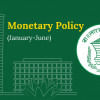Will there be any respite from inflation?

Last weekend began with news that did not provide comfort.
After the hike in March, power prices are expected to be hiked three further times this year.
However, it will not end there as prices will be increased in four rounds next year as the government plans to remove subsidies on the energy sector to comply with a condition for the $4.7 billion loan from the IMF.
To many, especially salaried and fixed-income individuals, this means they will have no option but to find ways to cut expenditures to bear increased electricity bills.
Incomes have not risen in line with the spiralling cost of living.
Inflation, a measure of the increase in the prices of goods and services consumed by a typical consumer, has been stubbornly high. It rose to 9.81 percent in March after slightly easing the month prior.
The Bangladesh Bureau of Statistics has not published April's consumer prices data yet. But it seems that whatever the inflation in April was, prices may go up in the coming quarters because of the power ministry's plan to increase electricity tariffs.
"Higher prices of electricity may stoke inflation further. We are already squeezed by consistently high inflation. The power price increase will squeeze us further," said Ghulam Rahman, president of the Consumers Association of Bangladesh (CAB).
This is not good news for industrialists either.
Over the past two years, they had to accommodate the increased price of electricity and gas to run factories. Since January 2023, consumers have seen four rounds of hikes in power prices.
A further increase will only add to the woes of entrepreneurs.
"This is not good news at all. We have been registering increased production costs for the last two years because of higher prices of electricity, gas, and increased wages," said Md Fazlul Hoque, managing director of Plummy Fashions Ltd, a knitwear exporter.
"This is making us uncompetitive," he added.
Hoque, also a former president of the Bangladesh Knitwear Manufacturers and Exporters Association, said the production cost at his factory has risen by at least 10 percent.
"This is huge from the perspective of exports," he said. "Exports of China and Vietnam are growing in the US market. Bangladesh is only losing. We are failing to compete with them."
He said the deprecation of taka over the last two years provided some benefits to exporters but they could not reap the full advantage.
"This is because we have to import raw materials for exports," he added.
Hoque said many discussions are being held with a focus on increasing revenue collection.
"And though I understand that improving revenue collection is necessary, no one is raising the issue of cost reduction," he added.
Costs are also an issue in the case of the power sector.
The government has been bearing a high burden for the high cost of electricity production and required subsidies, which are projected to be worth Tk 35,000 crore in the current fiscal year of 2023-24, mainly due to the capacity charge paid to private power producers.
CAB President Rahman said there are two ways to reduce subsidies.
"Either you increase prices or bring down the cost. There is a lack of transparency and accountability in the power sector. The question is whether the power is purchased from private producers at competitive rates. Prices may be inflated," he added.
Rahman, a former chairman of the Anti-Corruption Commission, said the government created an overcapacity for power production which led to increased cost of production.
Because of overcapacity, capacity charges are being paid to idle power plants, he said. This is one of the major reasons behind high subsidies for electricity production.
"The IMF was supposed to pay attention to these areas and suggest the government reduce overspending and ensure transparency in the sector. Instead of that, transferring the burden of subsidies onto the consumers is unjust," Rahman said.
"Increasing prices will encourage irrational expenses. However, we would have no objection if the prices are raised after addressing all these issues," he added.
"How long will the capacity charge be given?" questioned Monzur Hossain, research director of the Bangladesh Institute of Development Studies (BIDS), while urging the government to get rid of capacity payments to private power producers.
He said any spike in electricity prices affects both the rich and poor.
"But it hurts the poor more than the rich. So, the government should explore how it can provide subsidies to the poor," Hossain added.
He also questioned the timing of the plan to hike electricity prices as the economy is grappling with high inflation, sluggish domestic demand and persistent pressure on its external account.
"At present, prices are already at elevated levels. At this point, it will not be wise to hike the power tariff. Inflation will rise with the hike in the prices of electricity. This will have an economywide effect," Hossain said.
If so, common people, who have already seen a gradual deterioration of their purchasing capacity and subsequent erosion of living standards, seem to be getting no respite from the price shocks.

 For all latest news, follow The Daily Star's Google News channel.
For all latest news, follow The Daily Star's Google News channel. 









Comments